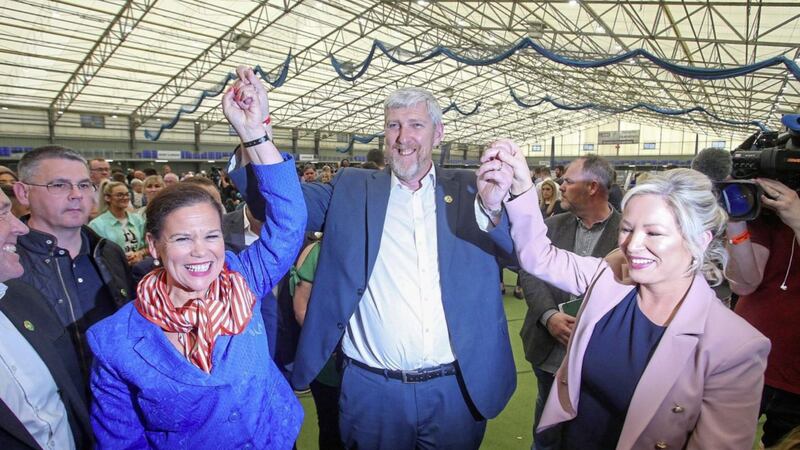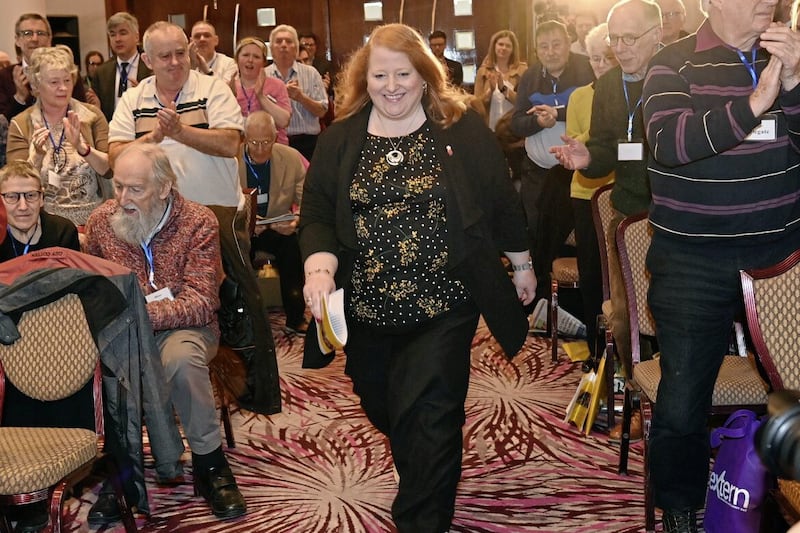Post-Good Friday Agreement? Post-St Andrews? Post-Brexit? Call it what you will but we are embarking on a new political era.
There are now three Stormont blocs or, some might argue, two-and-a-half. This transformation in our polity occurred while the tectonic plates of geopolitical power continued to shift, drawing Ireland into a new orbit in the aftermath of Brexit and pushing Scotland further away from England. Last Thursday’s poll signals a reorientation of regional power and therefore all-Ireland power - a process that is expected to accelerate in the Republic’s next mandate.
Sinn Féin has had an exemplary election, with a result that may even have surprised its own accomplished strategists. Now, on paper, three times bigger than the SDLP, the result gives a clear message about where the nationalist/republican community’s political allegiance lies. It doesn’t mean the SDLP is redundant but without something transformative happening organisationally, it’s in danger of becoming niche. The Ulster Unionists scraping just enough seats to secure a ministry in the executive will no doubt add to the SDLP’s sense of isolation and despondency. The party appeared to do everything right during the campaign but the electorate just wasn’t buying its message in significant numbers.
Assembly Election Results Hub
The centre ground has consolidated and expanded. The ‘Alliance-surge’ mirrors that of recent European, local government and Westminster elections – and some. It cannibalised its nearest neighbour by displacing the Greens in two constituencies, which is sure to have left the latter party more than a little bewildered, given the apparent level of concern about the climate crisis and its leader’s comparatively strong profile and record in the assembly. A review of Stormont’s structures to reflect the electorate’s new preferences is inevitable though only the most optimistic would believe that a normal, fully-functioning consensual administration will emerge at the other side – but here’s hoping.
The DUP slumped but it wasn’t quite the mare reflected in some opinion polls – the single transferable vote system saving the party from humiliation. Its final seat tally masked a spectacular drop in first preference votes but the failure of the TUV to turn protest votes into seats helped Sir Jeffrey Donaldson save face. Nevertheless, the support for Jim Allister’s party shows that a small but significant section of unionism is exercised by the protocol and terminally anti-Good Friday Agreement, anti-St Andrews and anti-power sharing.
Given the DUP’s capacity to be spooked by allegations of lundyism, it’s likely this noisy constituency will be the tail that wags the political unionism dog over the coming months, with continual cat calls about Sir Jeffrey being Sinn Féin’s “bridesmaid”. The DUP’s election strategy, where it pitched to the hardline rather than the middle ground, suggests it will be a willing partner in this sham fight but ultimately, knowing what side its bread is buttered on, it will return to Stormont and serve alongside the first nationalist first minister.
Yet between now and the DUP facing the political reality and feasting on humble pie, there will plenty of manoeuvrings along an axis that stretches from Belfast to London, Dublin, Brussels and Washington. The protocol in some form is staying but mitigations on goods destined solely for the north will be dressed up as the removal of the Irish Sea border. The destination is clear, the timescale less so.
Sinn Féin’s victory will inevitably lead to greater agitation for a border poll but that momentum was there before the election, and despite the symbolism, numerically the crucial tipping point in terms of nationalist seats has not been reached. Nevertheless, the issue’s not going to go away, y’know, and the imperative for clarity from the secretary of state on the criteria for a referendum is greater than ever, as is the need for an open and mature discussion on both sides of the border about the potential for constitutional change.
Alliance’s success notwithstanding, the election result shows that for all the talk about a cost of living crisis and bread and butter issues, constitutional allegiance and identity remain the primary motivations when people cast their votes. But while seat tallies in the assembly have transformed and the DUP has been knocked off its perch, it’s debatable how much politics will actually change in the short to medium-term.








